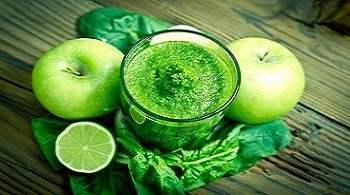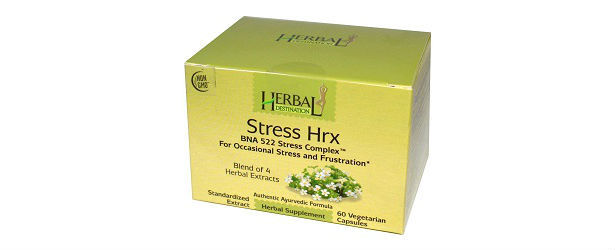
Foods that Lower Anxiety and Keep You Calm
According to the World Health Organization, approximately 121 million people throughout the world suffer from depression. About 500 million people suffer from various kinds of excessive stress or anxiety. There are numerous methods to help us avoid anxiety and to reduce its intensity and its effect on our bodies.
The most widely recommended and the simplest remedy lies in the foods that we eat. When we are conscious about paying attention to the variety, quality and quantity of the foods we eat, we notice miraculous changes in the way our body functions. This article discusses anti-anxiety diets and their impact on our body and emotions.
Water
Our brains need a sufficient supply of water to function properly. Water reduces fatigue, flushes toxins out of the body, transports nutrients to cells, and encourages a balanced emotional state. Water also dilutes excess hormones and enzymes, which neutralizes their effects. Experts recommend drinking 8 to 10 glasses of water a day.
Fruits and Vegetables
Leafy green vegetables are high in nutrients and low in calories. Leafy vegetables contain vitamins and minerals such as iron, vitamin K, magnesium, and vitamin B – a natural stress reducer. Foods rich in vitamin B include low-fat milk, soybeans, liver, yeast extract, lean meat, and cereals. These foods are excellent for lifting spirits.
Try to consume vegetables and fruits in their natural state instead of processing them by heating and cooking, which can destroy the useful enzymes. Eat a wide variety of berries such as cranberries and raspberries that contain flavonoids that promote a healthy heart. Grape skins contain resveratrol, which prevents artery plaque buildup.
Milk
Drinking a glass of warm, low-fat milk can lower stress and tension – regardless of the time of day. Milk contains tryptophan, which produces serotonin – a chemical in the brain, that is essential for its calming effect and ability to enhance mood.
Acid vs. Alkaline Foods
Acidic foods such as spicy chili, peppers, garlic and turmeric, pickles, dairy products, eggplant, tomatoes, caffeinated beverages (cola, coffee and tea) and alcohol, can reduce our body’s ability to absorb magnesium. Magnesium is a mineral that helps relax muscles and shuts down adrenaline. When magnesium is low, muscles tighten, adrenaline levels increase and stomach acids surge – causing indigestion, which may lead to anxiety.
 On the other hand, alkaline foods such as smoothies made from fresh fruit are the ideal way to reduce acid levels in the body.
On the other hand, alkaline foods such as smoothies made from fresh fruit are the ideal way to reduce acid levels in the body.
Excess salt lowers potassium levels and may lead to high blood pressure. It’s important to cut down on your salt intake.
Complex Carbohydrates
Foods such as potatoes and whole grains take longer to digest, causing you to feel full and satiated for a longer time. This helps control blood pressure as well as sugar levels, and also helps reduce anxiety.
In addition, oats aid the nervous system and hazelnuts are valuable for healing raw nerves. Try dissolving honey in warm milk or lime juice for a calming effect.
Sugar
Sugar can impact blood sugar levels which may cause mood swings and anxiety. Too much sugar also negatively impacts the brain’s ability to function.
Avoid sugary junk foods like carbonated soda, chocolate, pastries with refined flour and candy. In addition, try to lower your intake of high-fat foods such as ice cream, cheese, chips, butter, and deep-fried foods.
Omega-3 Fatty Acids
Numerous studies have linked diets deficient in omega-3 fatty acids to anxiety and depression. Foods high in omega-3 include fish, walnuts, winter squash, flax seeds, and shellfish.
Green Tea
Green tea is full of compounds that help with digestion and weight loss. It produces antioxidants that fight a variety of illnesses such as cancer. Green tea increases the production of alpha-brain waves, which helps us relax.
Chamomile, a member of the sunflower family, is thought to calm the central nervous system and stimulate healthy sleep patterns.
Indian Ayurvedic Herbs
The use of these herbs for medicinal purposes dates back to as early as 1500 BC. Ayurvedic herbs have been proven to show positive effects.
- Ashvagandha (White cherry) contains hypnotic properties and is used as an anti-stress adaptogen.
- Tagara (Indian Valerian), shilajeet (mineral pitch) and tulsi (holy basil) have all been found to contain anti-stress properties which relax the mind, promote better sleep, and aid with emotional issues.
- Saffron is considered to have anti-stress, anti-anxiety, anti-depressant, anti-heart disease, antioxidant, and anti-cancer properties as well as enhancing sexual performance.
Anti-anxiety diets play a critical function in how our body reacts to stress. A well-fueled body, free of chemicals, preservatives, and empty calories, found in so much of our modern junk food, can help clear your system and your emotions of unneeded toxins that hamper your ability to function properly.
TOP 5
ANXIETYTreatments |
|||||
| AnxiClear | Exulin | Hapinex | MindSoothe | ReloraMax | |
|---|---|---|---|---|---|
| 1 | 2 | 3 | 4 | 5 | |
| Overall Rating | 99.50% | 87.30% | 82.10% | 76.80% | 72.80% |
| Performance* |





|





|





|





|





|
| Speed of Results* | Extremely Fast | Good | Good | Average | Average |
| Quality of Ingredients | Premium | Good | Good | Average | Unknown |
| Customer Satisfaction Evaluation | 99.40% | 85.30% | 80% | 74% | 70.30% |
| Safety Evaluation | Safe for Use | Safe for Use | Safe for Use | Safe for Use | Safe for Use |
| Customer Service Rating |





|





|





|





|





|
| Reorder Rate | Highest | Good | Average | Average | Average |
| Return Policy | Risk Free | Unopened | Unclear | Good | Risk Free |
| Success Rate* | 99.40% | 86.20% | 81% | 74.50% | 69% |

 Subscribe Now
Subscribe Now











